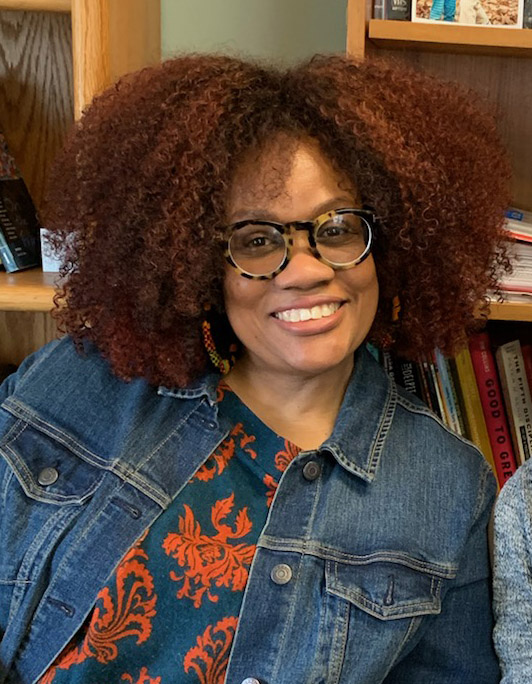The New 3Rs: Release, Reclaim, Resist
"My self-care makes me possible because it sustains the source of my humanity," writes trainer Dionne Grayman.
"My self-care makes me possible because it sustains the source of my humanity," writes trainer Dionne Grayman.

My father was one of the few Black men that worked at IBM in the early 1970s. He left for work every morning wearing a three-piece suit, carrying a briefcase, and walking with the same ditty-bop he had perfected as a basketball god in Brownsville, Brooklyn.
When he came home, he would take off his jacket, tie, shirt, shoes. With my sister and me each perched on a knee, he would sit, for what seemed like hours, in front of our record player. He would nod in time to the music, sing a little and point out Coltrane’s phrasing; Sarah’s climbing octaves; Earth, Wind and Fire’s horn section.
My sister and I, so deep in the delight of Daddy Time, didn’t pay attention to the fact that he didn’t talk much. What I know now is that was his release, his reclamation of self, his healing from a day spent in the psychological and spiritual violence of corporate life mired deeply in supremacy culture. It was his self-care.
When I see educators talking about how self-care is being weaponized against them or how self-care isn’t a systemic fix, I’m baffled. I exist in the real world and acknowledge that schools are facing a near insurmountable number of challenges due to the ongoing Covid-19 pandemic. I’m going to also acknowledge that the current educational crisis existed pre-pandemic in too many school districts across this country for far too long. And I am here for complexity and nuance.
But as someone who has classroom experience with incarcerated youth and students in specialized high schools, I have always practiced self-care because teaching is HEART work. Even as a new teacher, I intuitively knew that I had to operate from a place of abundance so that I could pour into my students and be poured into by them.
One time, I was talking to a student who was standing in the hallway waiting for an escort to the visitation room in the correctional facility where I taught English and witnessed the right side of his face being sliced open in an attack. I had to “comfort” him as his blood was spurting out between his fingers and onto the floor. Another time, I spent an afternoon visiting one of my students, a beautiful young woman who wanted to go to college to study mechanical engineering, in a psych ward after her suicide attempt.
In more than a few schools, I’ve had colleagues not speak to me EVER in an attempt to deny my existence. Every car ride home after work was filled with music—yes, my dad’s classics but also Michael Jackson, Lauryn Hill, Jay Z, and Mary J. Blige. (Shouts out to Mary J. Blige for being thoughtful enough to provide the soundtrack for my grown woman life!)
The brilliant poet Lucille Clifton, in her poem “Won’t You Celebrate with Me” reminds me that “everyday something has tried to kill me and has failed.” Yeah, my self-care makes me possible because it sustains the source of my humanity. It allows me to delight, to connect, to be authentic, to be in purpose—to BE. HERE.
Wise warrior Audre Lorde offered up self-care as “self-preservation and an act of political warfare” when she was a member of the Combahee River Collective. Because while self-care is for the individual, it happens best inside of community care. Self-care was feeling my Nana’s soft hands rubbing Blue Seal (Vaseline) on my face. Self-care was watching my Grandma making Brunswick Stew and Parker House rolls (Google is your friend!) before my Grandpa came home from work. I think of ancestors who, with bent backs and aching limbs, sang songs of liberation all while under the threat of the whip, the rope, the dogs, the whims of overseers. THAT was self-care in community.
This, then, is an invitation to help you remember how your ancestors flourished despite the weapons that were formed against them. To release the exhaustion, the feelings of failure and futility. To reclaim the herbs, the salves, the hooch recipes, the meals, the songs, and stories. To resist the lies about bootstraps, rugged individualism, and how power should be used and by whom.
Crisis always provides an opportunity for new possibility. Practice self-care so you can fully engage in the dismantling of a system that has never served OUR COLLECTIVE well-being. Start small but start. You deserve your best you and we need the best from each other.